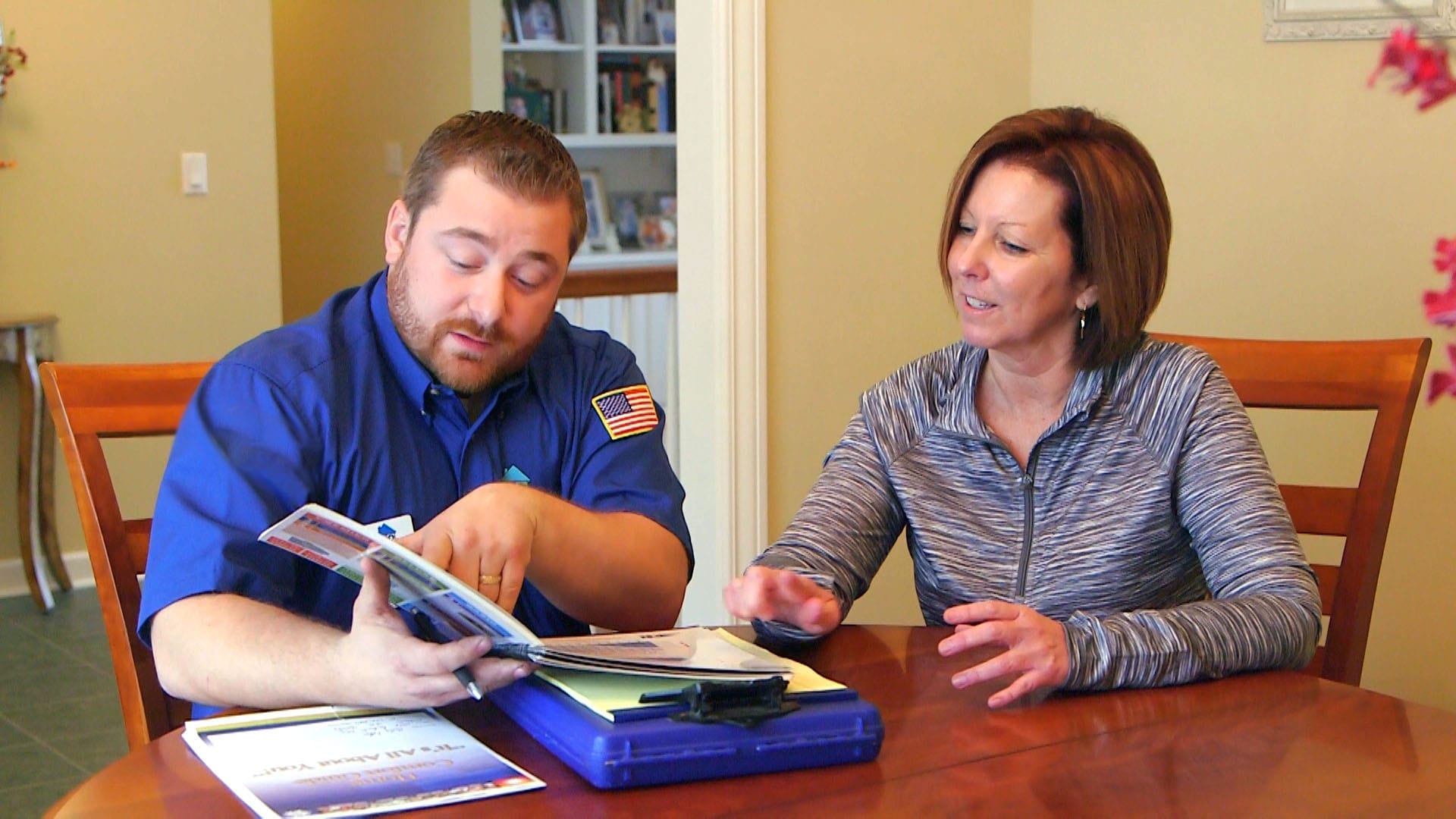
We all know the importance of having a well-functioning furnace installed in our home, especially during the peak of winter. As time goes on, it’s normal for your furnace to start malfunctioning and showing signs of wear and tear. For this reason, it’s essential to know when to replace your furnace.
Before deciding whether it’s time to replace your furnace or not, it’s important to investigate the state of your current unit and system as a whole. Perhaps you’re receiving inadequate heating because of a ductwork issue, or you just need to have your furnace filters replaced.
If your furnace is really on its last leg, you’ll want to equip yourself with knowledge so you can accurately find a replacement. Things like fuel type, efficiency, and size can be clear indicators of when to replace a furnace.
How Long Does a Furnace Last?
With proper furnace maintenance, your unit can last anywhere from 15 to 20 years. However, if you don’t address issues when they first arise, you may find yourself replacing your furnace earlier than you intended.
To have your furnace for its entire lifespan, it needs to be taken care of from the first moment you install it. Many factors can decrease your furnace’s lifespan, including:
- Improper Installation
- Lack of Maintenance
- Inaccurate Sizing
- Inconsistent Temperature Settings
To ensure your furnace’s longevity, it’s important to have a professional technician inspect your home and properly install the unit. From there, having it serviced annually will lead to less frequent breakdowns and money savings, ensuring your furnace is ready for the winter.
Should You Repair or Replace Your Furnace?
After the first few years of operation, your furnace may start to malfunction. If your unit is properly maintained, these issues should be easily repaired. However, when issues are left unattended for too long, the problems can grow and grow, causing the entire system to be affected.
While you need to know when to repair vs. replace your furnace, there are clear signs that indicate you should replace your unit:
- Cold Spots in the House: When rooms don’t heat uniformly despite a functional furnace and ducts, there may be a serious problem requiring repairs or replacement.
- High Energy Bills: Increased fuel consumption compared to the previous year could indicate burner or blower malfunctions or interference from corrosion and buildup, affecting heat transfer efficiency.
- Yellow Pilot Light: A yellow pilot light suggests incomplete combustion. Possible causes include dirty filters or blocked ventilation system parts. This issue can be accompanied by unusual smells and noises.
- Older Than 15 Years: While your unit can last between 15 to 20 years, if it’s older than 15 years and is causing you lots of grief, avoid repairs that won’t last too long and save money by having the entire unit replaced.
What to Know Before Replacing a Furnace
There are many things to know before replacing your furnace so that you can find a new unit that meets your exact needs. If you simply buy a model because there’s a deal or a low price, you may end up with a furnace that will raise your energy bills and cause other problems.
It’s best to have a trained professional inspect your home to know exactly what style and size of furnace you should install so you can keep your energy bills low and comfort levels high.
Type of Furnace
When getting a furnace upgrade, consider the style and power source that would be best for your home. Electric furnaces are relatively affordable and are one of the most efficient types of heating units. However, these machines can be more expensive than natural gas-powered furnaces in areas that only provide coal-based electricity.
On the other hand, furnaces that run on natural gas are more expensive to purchase than electric ones. But, because they do not affect your electric bill at all, they are much cheaper to use long-term. If you live in an area that experiences extended periods of cold, this may be the best choice for you.
Energy Efficiency
Furnace efficiency is determined by how much electricity, oil, or gas is converted into heat. Modern units have advanced features that may cost more upfront but can save you money through the years. Be sure to consider long-term costs when buying a new furnace.
Before you replace your old furnace with a high-efficiency unit, it’s important to notice the signs of inefficiency in your furnace. In some cases, you may just need in-depth maintenance or repairs. When replacing your unit, having every aspect of your system inspected will help keep your furnace running smoothly.
Size of Your Home
The size of your home can help determine how big or small your new furnace should be. A larger house with lots of potential air leaks will require a bigger heating unit. This is because more heated air will have to be continuously brought into your home. Meanwhile, a more modest-sized home may get more than adequate heating with a smaller furnace installed.
A licensed expert may be able to help you maximize heat conservation within your residence so you won’t have to spend more on large heating units. Bigger furnaces do cost more than smaller ones. That’s why you should speak to a professional who can help you find the perfect furnace for your home.
If you need more furnace-buying tips, turn to our team at Home Comfort Experts. Our professionals can help you with furnace repairs and replacements in Northern Indiana and Southwestern Michigan. Contact us to schedule an appointment with our technicians.



